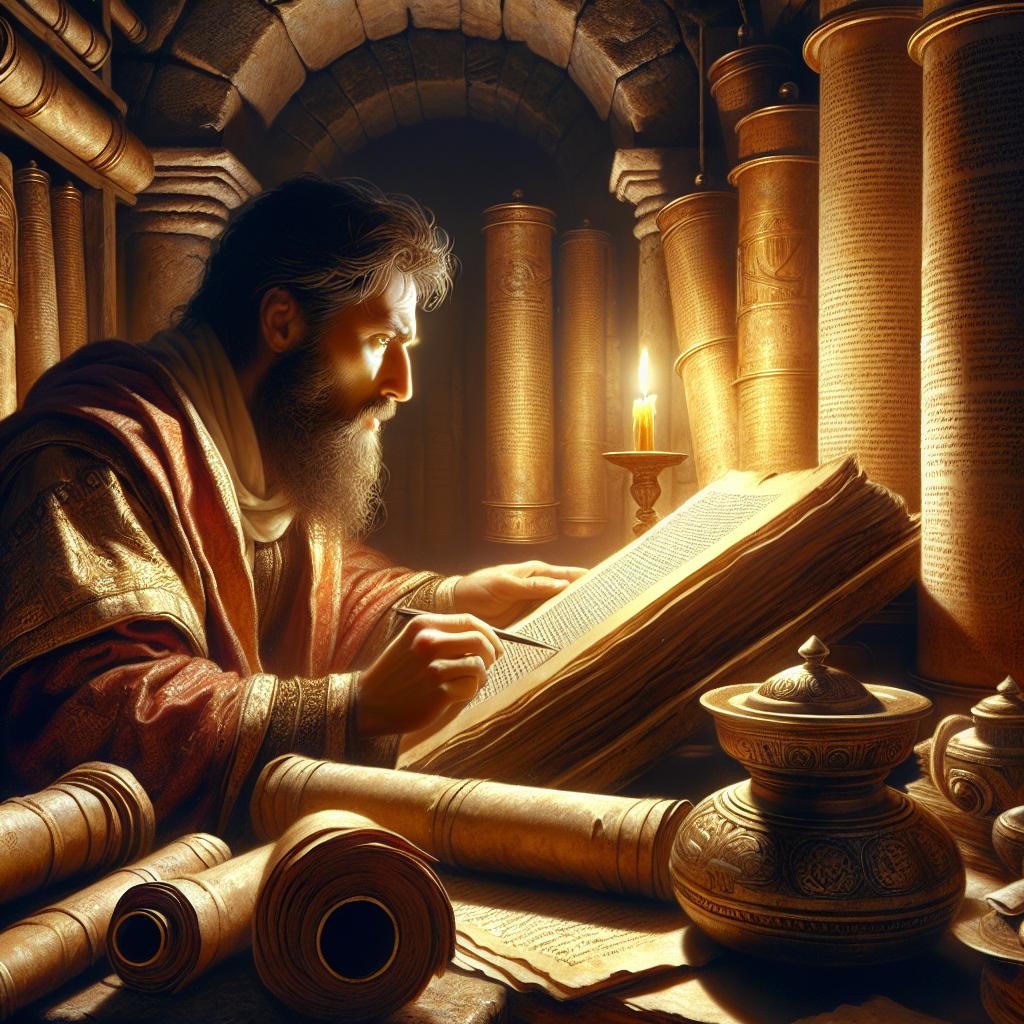
Unveiling the Profound Meaning of Genesis in Basil's Ad 329-379: A Christian Revelation
Published: 22 May 2024
Genesis Means What It Says: Basil (AD 329–379)
Introduction
There is a common misconception that early Christians, such as Basil (AD 329–379), took an allegorical approach to interpreting Scripture, particularly the book of Genesis. However, a closer examination of Basil's writings reveals that he held a literal view of Genesis and defended the biblical account against various heresies of his time. Basil was a bishop, monk, pastor, and church leader who played a significant role in defending the Trinity and the deity of Christ. He was highly respected and admired, earning him the title "Basil the Great." His sermon collections, including the Hexaëmeron, provide insights into his beliefs about the creation account in Genesis.
Point 1: Instantaneous and Recent Creation
Basil firmly believed in an instantaneous and recent creation. In his sermons on the days of creation in Genesis 1, he argued that the world arose at the will of God in less than an instant. He emphasized that God's command brought forth all aspects of creation, from fruit trees to swimming creatures. According to Basil, creation happened swiftly and with purpose.
Point 2: 24-Hour Days
Basil affirmed that the days mentioned in Genesis Chapter 1 were literal 24-hour periods. He explained that when Scripture says "one day," it signifies a full day and night cycle. Basil argued that twenty-four hours measure the space of a day, regardless of variations in daylight duration during different seasons. He believed that each day described in Genesis was a distinct period with specific events occurring within it.
Point 3: Order of Events
Contrary to some interpretations that suggest plants were created after the sun, Basil maintained that the order of events in Genesis Chapter 1 reflects the actual sequence of creation. According to him, plants were created before the sun and moon. Basil argued that God intentionally created light, day and night, the firmament, and dry land before introducing the sun and moon. He believed that this order emphasized God's sovereignty over creation and prevented people from attributing the origin of light and life solely to the sun.
Point 4: Evolutionary Ideas
Basil strongly rejected the idea of evolutionary change. He criticized philosophers who claimed to have undergone transformations from animals to humans or other forms. Basil considered such ideas nonsensical and argued that they lacked wisdom. For him, the plain reading of Scripture refuted any notion of humans evolving from lower forms of life.
Point 5: Original Creation as "Very Good"
Basil affirmed the original goodness and absence of evil in God's creation. He emphasized that when God saw His completed work, it was deemed "good." Basil explained that God's definition of beauty differed from a human perspective. God valued perfection, purpose, and usefulness in His creation. According to Basil, the presence of thorns in plants after the Fall served as a reminder of humanity's sin and the consequences it brought.
Point 6: Animals and Humans as Vegetarian
Basil argued that animals and humans were originally vegetarian in the created order. He believed that in Paradise, before the Fall, God provided fruits, vegetation, and herbs as food for all living beings. Basil acknowledged that some animals are carnivorous by nature but suggested that this change occurred after humanity's departure from its assigned role. He referred to Genesis 9:3, where after the Flood, God allowed humans to eat all foods. Basil saw a restoration to the original vegetarian state as part of humanity's return to a paradisal life free from the passions of the flesh.
Why This Matters
Understanding Basil's views on Genesis is significant because it challenges the notion that early Christians held an allegorical interpretation of Scripture. Basil's writings demonstrate that a literal reading of Genesis was prevalent in the early Church. This perspective has implications for Christians today, as it provides a foundation for defending the biblical account of creation against alternative interpretations and secular worldviews.
Think About It
Basil's writings highlight the importance of interpreting Scripture as it was written and not allegorizing its meaning. By doing so, we avoid distorting God's intended message and placing ourselves above the Holy Spirit, who inspired the writing of Scripture. Basil's approach reminds us to approach the Bible with humility and reverence, seeking to understand its plain meaning rather than imposing our own ideas onto it.
In conclusion, Basil's writings serve as a valuable resource for understanding the early Church's view on Genesis. His belief in instantaneous creation, 24-hour days, the order of events, and the absence of evolutionary ideas align with a young-earth, Creationist perspective. By delving into Basil's teachings, we gain insight into how early Christians understood and defended the biblical account of creation.
